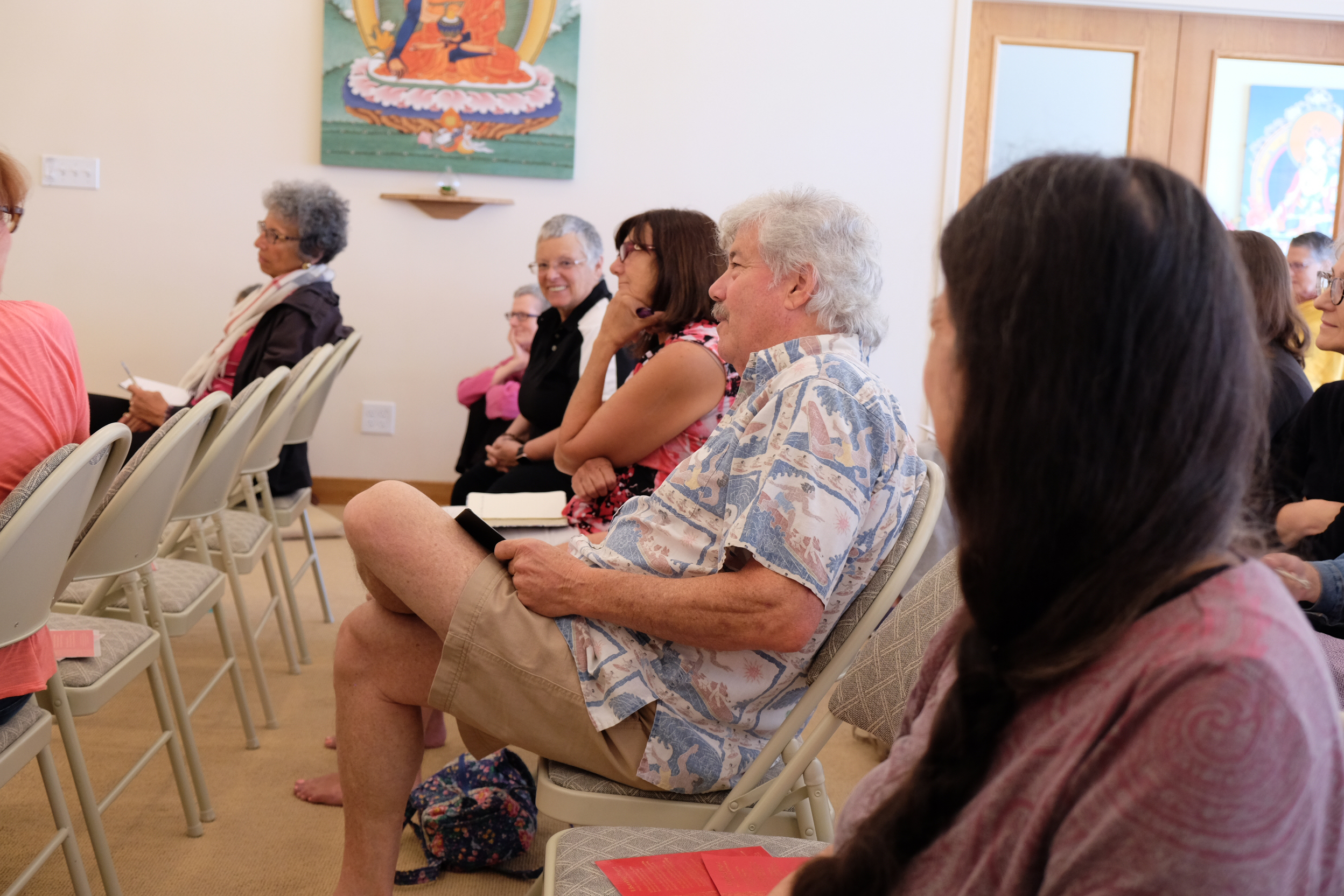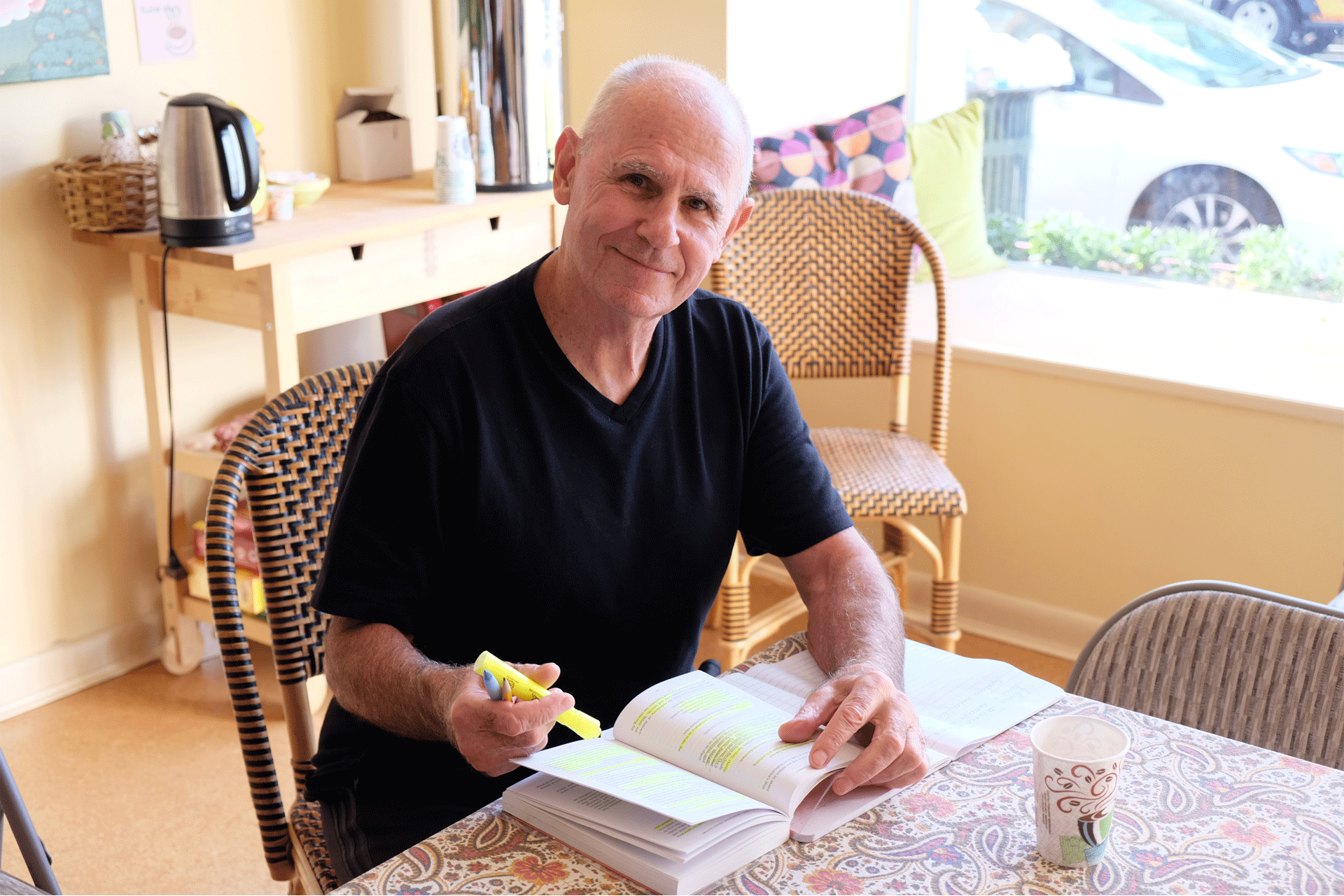Huntington Teacher Training Program
Benefit Others and Train to Become a Qualified Kadampa Teacher
The Teacher Training Program is designed for people who wish to dedicate themselves to the study, practice and flourishing of Kadam Dharma in this world.

Thursdays in Huntington
6:30-8:45pm
Guide to the Bodhisattva’s Way of Life and Meaningful to Behold
Prospective students must meet with the Resident Teacher to be admitted.
Meaningful to Behold is a highly acclaimed commentary to the great Indian Buddhist Master Shantideva’s famous spiritual poem Guide to the Bodhisattva’s Way of Life, one of the best loved and most important Mahayana Buddhist texts. It reveals with poetic beauty and deep spiritual insight how to enter, make progress on, and complete the Buddhist path to enlightenment.

KMC-LI TTP Instructor
Resident Teacher Neil Toyota

What is the purpose of the TTP?
The purpose of the Teacher Training Program is to provide an extensive presentation of particular subjects of Mahayana Buddhism to enable practitioners to deepen their knowledge and experience of Buddhism, and to train as qualified New Kadampa TraditionTeachers. All Resident Teachers of Kadampa Buddhist Centers follow this in-depth program of study and practice.
What subjects are studied on the TTP?
The program comprises the following twelve subjects, based on Buddha’s Sutra and Tantra teachings and the corresponding commentaries by Venerable Geshe Kelsang Gyatso:
1. The Stages of the Path to Enlightenment, based on the commentary Joyful Path of Good Fortune
2. Training the Mind, based on the commentaries Universal Compassion and The New Eight Steps to Happiness
3. The Heart Sutra, based on the commentary New Heart of Wisdom
4. Guide to the Bodhisattva’s Way of Life, based on the commentary Meaningful to Behold
5. Types of Mind, based on the commentary How to Understand the Mind
6. Guide to the Middle Way, based on the commentary Ocean of Nectar
7. Vajrayana Mahamudra, based on the commentary Clear Light of Bliss
8. The Bodhisattva’s Moral Discipline, based on the commentary The Bodhisattva Vow
9. Offering to the Spiritual Guide, based on the commentaries Great Treasury of Merit and Mahamudra Tantra
10. Vajrayogini Tantra, based on the commentary New Guide to Dakini Land
11. Grounds and Paths of Secret Mantra, based on the commentary Tantric Grounds and Paths
12. The Practice of Heruka Body Mandala, based on the commentary Essence of Vajrayana
What are the TTP commitments?
(1) Attend all classes and have the aspiration to study all 12 books
Students attend all classes, unless unavoidable work, family commitments, or health issues prevent it. There are usually two terms (Fall and Winter/Spring), with a break during the Summer Festival time. When students have to miss a class, they need to contact TTP class co-coordinator beforehand, listen to the recording of the class and complete a Study Summary before the next class.
(2) Preparation
This means preparing for each class by reading ahead, organizing your thoughts on the subject, and memorizing the essential points (primarily the root text and outlines). You should allow at least one hour’s preparation per class.
(3) Retreat
This means engaging in Great Preliminary Guides, Lamrim, and Mahamudra/Highest Yoga Tantra retreats each year. These will be offered at different times throughout the year. TTP students need to engage in at least one session per day of these retreats—preferably at the Center itself, or at home.
(4) Teaching Skills
The entire TTP Sangha, plus all others who are teaching at KMC-LI, must attend the teaching skills classes which are usually held on Saturdays.
(5) Pujas
This means attending Center pujas whenever possible – especially the monthly Melodious Drum and the bi-monthly Offering to the Spiritual Guide – in order to purify your mind, accumulate good fortune, and receive powerful blessings and protection.
(6) Exams
TTP students periodically take written exams on the material they have covered in the texts. These tests, taken at the end of each section of a book, are to gauge the student’s progress and understanding. These are for the benefit of the student (and their own future students), and the results are confidential. To become a completely qualified Kadampa Teacher, and receive a certificate, it is necessary to pass all the tests. Until that time, TTP students can teach, but they are still trainees.
(7) Pure Lifestyle
Students also undertake to live a pure lifestyle. This means having the strong aspiration to observe the moral discipline of abandoning killing or harming others, and abandoning stealing, sexual misconduct, lying, and taking intoxicants (including smoking); and gradually putting this aspiration into practice. This guideline is intended both to help our own spiritual practice and to set a good example for others.
(8) Helping with the Development of Your Local Dharma Center
Attending a weekly General Program class has many practical benefits for an aspiring Dharma Teacher:
- It sets a good example of being a student (the best students make the best teachers).
- It helps the development of the main Center (without a strong Center, it is not possible to set up branches, and therefore there is no possibility of actually teaching).
- You can learn how to run a Dharma Center.
- You can help new people, and gain proficiency and skill in explaining Dharma to others
- You can learn practically how to teach General Program classes. For this reason, it is recommended that you also try to attend day courses at your Center.
- By helping a Dharma Center in any way, you create a great deal of merit and purify negative karma.
How much does it cost to join TTP?
The cost to join TTP is $95 a month. An added benefit is that at this membership level, all General Program classes (with the exception of a few special events a year) are included. This helps to ensure that the center remains financially strong so that our classes and programming can continue.

Interested in Joining?
Submit a Request
Please send an email to epc@kmcli.org to request a meeting with our Resident Teacher, Gen Kelsang Chenma.
